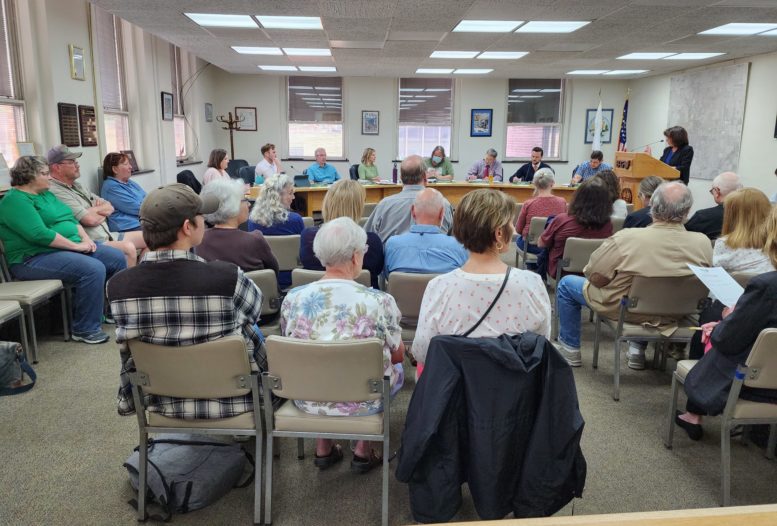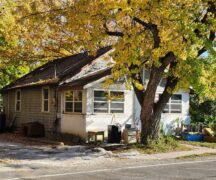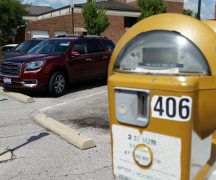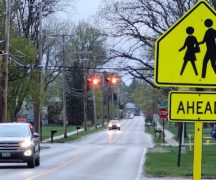By JAN LARSON McLAUGHLIN
BG Independent News
As the City of Bowling Green divided $500,000 in American Rescue Plan funds to help 15 local non-profit agencies, city leaders were asked again to rescue private businesses with some of the federal COVID relief funding.
The $500,000 is intended to help non-profit organizations recover from the pandemic, and help them serve people still struggling with COVID after effects. Some of the non-profits sought funds for ongoing operations and some for upgrading equipment. Many requests came from organizations trying to keep people fed.
“There’s a lot of good that’s going to come of this,” City Council member Greg Robinette said during a finance committee meeting Monday evening prior to the City Council meeting.
At the same time that the city administration recommended the funding for non-profits, city officials heard again from a local businessman and his mom, who believe some of the ARPA funds should be used to rescue small businesses.
Ben Vollmar, of Flatlands Coffee, said small businesses like his need the rescue funds to recoup their losses and help fuel the local economy. He initially asked that the city hand out $500,000 to local businesses in need.
Small businesses are “forced” to pay taxes, had roadwork “forced” upon them in the downtown, and were “forced” to follow pandemic restrictions, Vollmar said.
His mom, Mary Vollmar, spoke during the council meeting and said the funding would be for businesses that were overlooked before. For those council members struggling with giving taxpayer funds to private business, she said, “a lot of the taxes come from small businesses. Please pass this as quick as possible.”
City Council President Mark Hollenbaugh said during the finance committee meeting that he is uncomfortable handing out ARPA funding to for-profit businesses.
But council member Bill Herald said some businesses felt the brunt of the COVID pandemic.
“The businesses were hit by COVID,” he said, adding that mechanisms would need to be put in place to help with the selection and monitoring of the funding.
Robinette agreed that many businesses across the country missed out on the rescue funds. “I think it has merit,” he said.
Robinette suggested that City Attorney Hunter Brown be asked to put the proposal in formal legal language.
As for the non-profit organizations, whose clientele are Bowling Green residents most negatively impacted by COVID – such as those with lower incomes, those with food insecurity or unemployed – they were encouraged to apply for grant funding of up to $50,000 each.
Martha Woelke, community development administrator for the city of Bowling Green, calculated the financial impacts of COVID on each of the non-profit agencies between March 2020 through December 2021.
“It’s a really wide variety,” Woelke said last month of the applications.
“These organizations put a great deal of thought into how they were affected,” Hollenbaugh said.
Bowling Green was awarded $7.2 million in 2021 in American Rescue Plan Act funds designed to help the community recover from the economic impacts of the COVID pandemic. City Council received more than 450 funding suggestions from Bowling Green citizens, non-profit agencies, businesses and city government. The requests for funding far outnumbered the dollars available for the city and county.
The following non-profit requests were recommended by the city administration for funding:
- BG Christian Food Pantry – $50,000 for food purchases, food distribution and equipment upgrade.
- BG Fire Division Community Benefit Fund – $43,000 for Knox boxes, smoke detectors and community education.
- BG Girls Fast Pitch Softball League/Velocity – $10,000 for program support.
- Bowling Green Arts Council – $7,000 to support four one–month “pop up” art galleries.
- Brown Bag Food Project – $50,000 for food purchases, food distribution and operational support.
- Children’s Hunger Alliance – $50,000 for meal distribution to BG school students.
- First Christian Church of Bowling Green – $15,000 for community drive thru meals and food bags.
- First United Methodist Child Learning Center – $50,000 for recovery from pandemic distancing and ratio rules.
- La Conexion – $50,000 for community outreach and programming.
- National Alliance on Mental Illness (NAMI) – $50,000 to support mental health programming.
- STARS Community Learning Center – $50,000 for recovery from pandemic revenue losses.
- St. Mark’s Lutheran Church – $15,000 for Wednesday meals and Crim tutoring programs.
- Work Leads to Independence (WLI) – $30,000 for fleet management system for transportation network.
- Wood Lane Residential Services – $30,000 for agency support.





